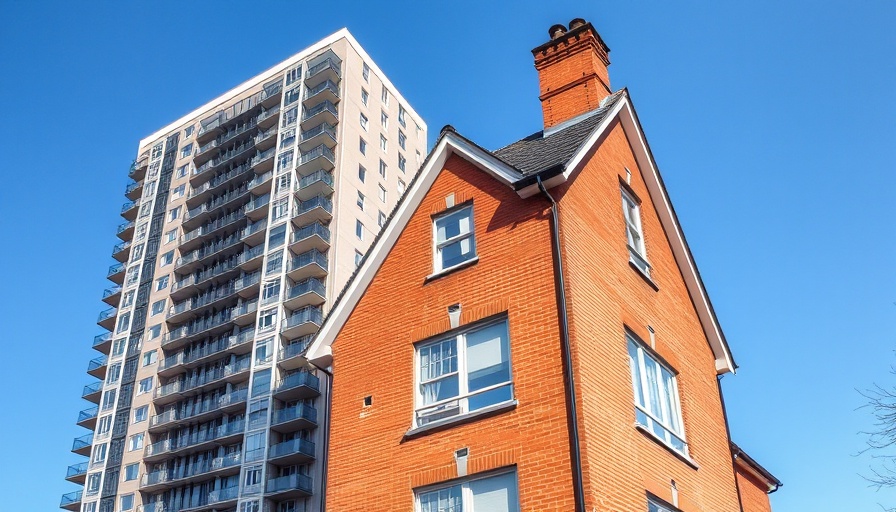
The Decision: Flat or House?
As you embark on the journey of home-buying, the age-old question often surfaces: should you invest in a flat or a house? This inquiry is particularly salient in 2025, as changing dynamics in the real estate market can greatly influence your choice. This article highlights the unique advantages and potential pitfalls of both options, helping you make an informed decision.
In 'Flats vs Houses In 2025: What Should You Invest In?', the discussion dives into the evolving dynamics of property ownership, exploring key insights that sparked deeper analysis on our end.
Understanding the Advantages of Flats
One of the most compelling benefits of flats is the simplification of property management. Unlike house owners who shoulder all the repair and maintenance costs, flat owners often pay a set monthly service charge. This includes provisions for essential maintenance tasks, providing peace of mind that large, unexpected bills, like a roof repair, won't cripple your finances.
Moreover, flats in city centers have historically seen surges in property value, especially as urban areas experience revitalization. For instance, if you had invested in a flat in Manchester City Center a few years back, you would have enjoyed significant equity growth. This typifies how flats can position you advantageously in a burgeoning real estate market.
Benefits of Buying a House
On the other hand, houses offer unparalleled freedom and control that flats simply cannot match. If you own a house, you are at liberty to make decisions regarding renovations, upgrades, or maintenance without needing approval from a management company. This autonomy can allow homeowners to add value to their properties, as extensions and alterations are straightforward processes, significantly boosting resale potential.
Furthermore, houses attract longer-term tenants, as families often seek stability more than young professionals looking for short-term city living. This extended rental period can yield a more consistent cash flow for investors, making houses potentially more lucrative in the long run.
The Market Trends in 2025: A New Era to Consider
Looking ahead to 2025, critical changes in legislation could reshape the landscape for flat ownership, making them more viable than ever. Simplifying lease extensions and enhancing regulations surrounding management companies could eliminate some of the disquiet many potential buyers have. Additionally, as societal preferences evolve post-pandemic, we may see increased demand for flats in urban areas.
The gap in pricing between flats and houses that has widened recently is also expected to narrow, presenting lucrative opportunities for those willing to invest in flats.
Ultimately, whether you choose to invest in a flat or a house, understanding both options is vital. As you weigh your options, consider your financial situation, career paths, and future needs. Embrace openness to both types of properties, as this will allow you to capture more opportunities in the dynamic market of 2025.
 Add Row
Add Row  Add
Add 




 Add Row
Add Row  Add
Add 

Write A Comment